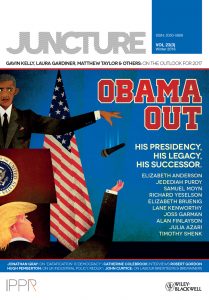Facebook Places and the Augmentation of Reality
You probably have heard about Facebook Places, a feature that brings the site up to speed with other location-sharing services like Foursquare and Gowalla that allow users to document where they are, as well as potentially who they are with and other comments about that location. The term “augmented reality” is often used to describe the layering of digital information onto the physical world [examples of where it is now, and where it might be going]. However, I have argued...






1467-7660/asset/DECH_right.gif?v=1&s=a8dee74c7ae152de95ab4f33ecaa1a00526b2bd2)
1099-1328/asset/dsa_logo.jpg?v=1&s=e4815e0ca3064f294ac2e8e6d95918f84e0888dd)